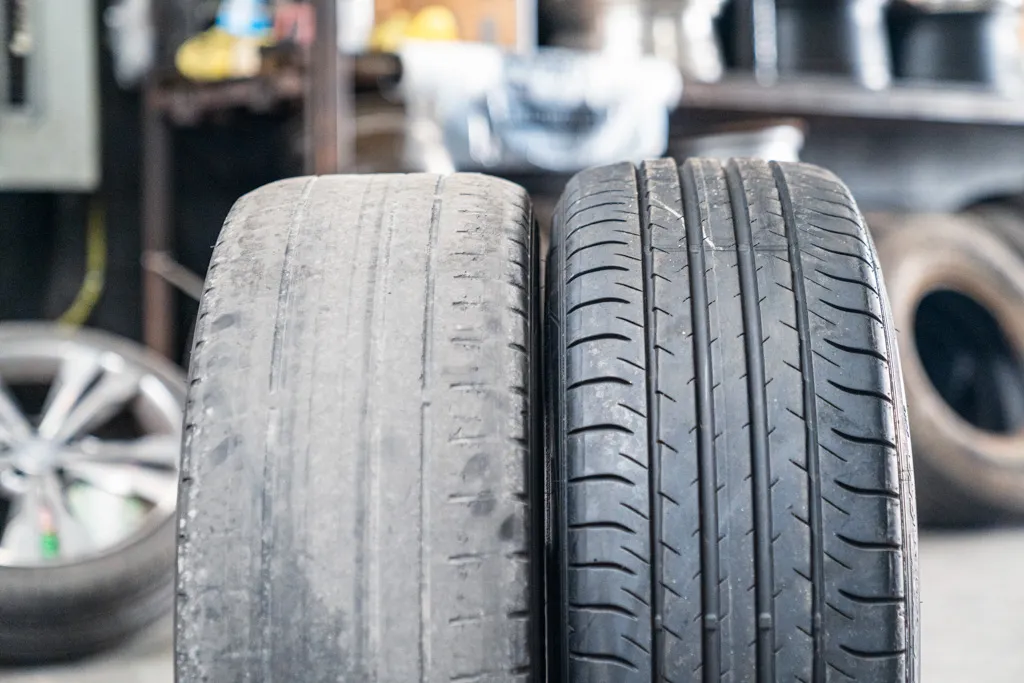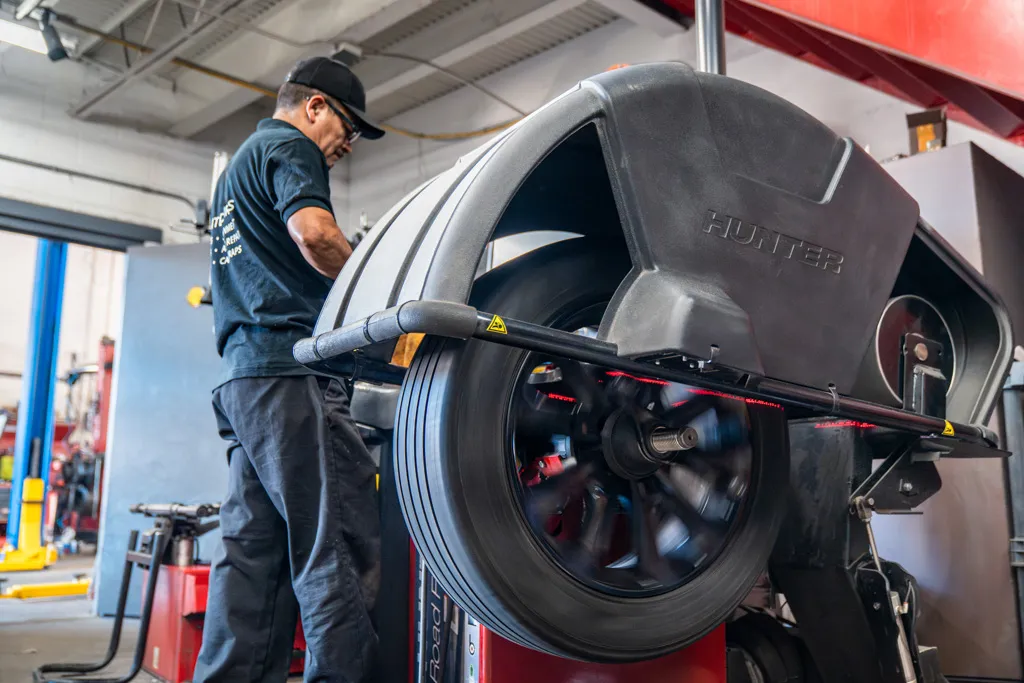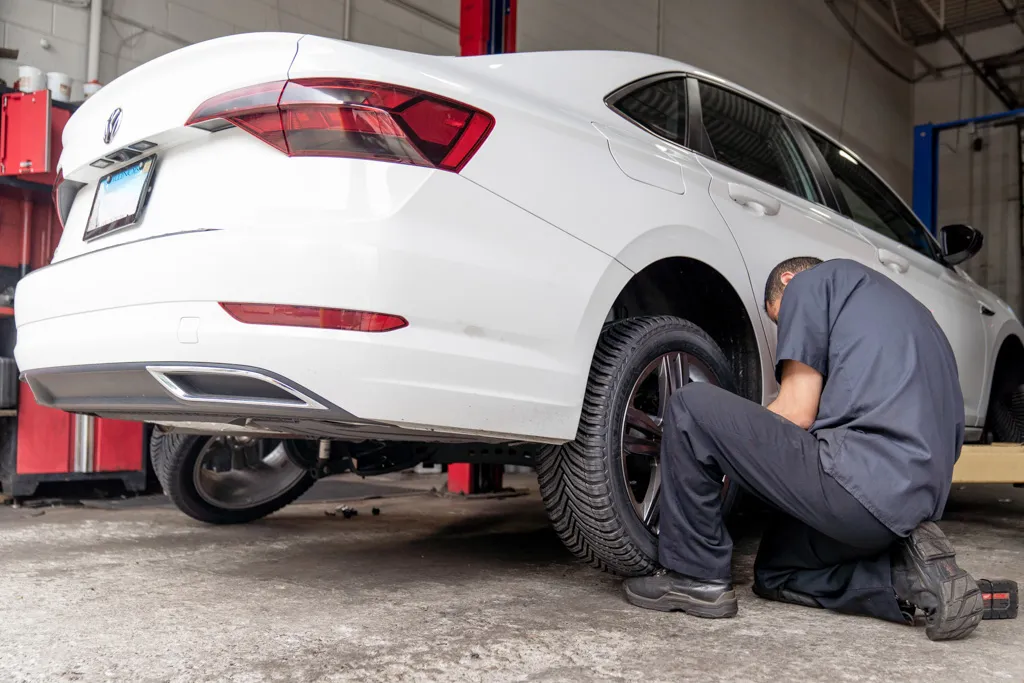6201 Z RS NR - pulley part number 6201z
Home / Product Dimensions approx inch / 12x16x16". 12x16x16". No products were found matching your selection. Search products. Products search. WooCommerce ...
If you don’t do any of these procedures regularly, your tires are likely to wear unevenly and vibrate, producing loud noises.
L44649
Most vehicle manufacturers don’t mention this procedure in their guides, so there are no time- or mile-related recommendations for alignment. However, the rule of thumb is to align the wheels annually or as frequently as you rotate your tires. You can get an alignment for $60-$100 at a tire shop or dealership.

When your tires start making noise, it might be normal road sounds or a sign of something wrong with your car. Usually, tire noise can signal a few things. One common culprit is tire wear, especially if the tread is unevenly worn or if the tires are getting old. It could also be a sign that your tires need balancing or alignment. And don’t forget about tire pressure – if it’s too low or too high, this can cause noise, too. Sometimes, it might even be the road surface itself, but if the noise seems unusual or excessive, it’s best to have a mechanic check your car to make sure everything is in good working order.
Manufacturers aiming for quieter tires usually put different tread block patterns near one another. Every block pattern produces a different tone when the air comes out of it. The goal is to balance the tones to create a neutral white noise. This process is called pitch sequencing and is vital for maintaining quiet tire noise.
Technical details for bearing 608 2RS/C3. Bearing type, size, inner and outer diameter, weight, OEM references, manufacturer/brand part number and ...

LM11949 bearing
If you use these driving styles, the air in the grooves of your tires often gets more compressed, making it louder. At high speeds, there’s more air circulating through the tread, which multiplies the regular tire noise. The air within the tire also acts like a large resonance chamber, causing a drumming sound.
The most dangerous irregular wear pattern, noise-wise, is local or patch wear, as it causes the tire to vibrate heavily. In the case of uneven wear, only one tire may produce excessive sound. This makes it easier to detect and solve the issue. Once you notice these wear patterns, you should determine and fix the cause, rotating the tires afterward. If the wear to the tread is too deep, you may also need to change the tire.
11949 bearing dimensions
Bearings have been our family business since 1951. Our goal is to supply high quality bearings at reasonable prices.100% satisfaction guaranteed.
Balancing tires involves putting small weights opposite the heavier spots. You can do it at a mechanic, where a specialist will locate all the places where the rubber is heavier. It will cost you $15-$80, depending on the state of the tires, the mechanic you go to, as well as other factors.
Dec 8, 2023 — As a rough estimate, wheel bearings can typically last anywhere from 85,000 to 100,000 miles in normal driving conditions. Vehicles that undergo ...
It’s recommended to rotate your tires every 5,000-8,000 miles. You can do it for $25-$120 at a tire shop or dealership. Some shops also do it for free if you buy tires from them.
If your car tires sound loud, another issue may be that your tires, wheels, suspension, and other parts require maintenance. A good maintenance routine should include:
The best surfaces to test your tires for tread noise are new asphalt roads and spacerless concrete. These are the quietest and will add almost nothing to the original sound of your tires.
Ensuring your tires are regularly rotated will also help them to wear more evenly, reducing the amount of sound they make.

Tires of bigger and smaller sizes than standard usually generate more noise. For example, a 265/ tire has a larger contact patch area than a 235/ tire. Therefore, it will cause more noise, as more rubber will touch the road. In smaller tires, for example, the 40-series, there’s less sidewall to absorb the noise. So, if your car tires sound loud, check their aspect ratio, as the 40-series are noisier than the 60- or 65-series.
HOW TO MEASURE A BEARING ?, WE SHOW YOU! To measure a bearing, the most appropiate tool is a pie de rey (spanish word) also called a caliper or micrometer but, ...
If your car tires sound loud, you don’t necessarily have to worry, as these sounds can be completely normal. But it’s also important to understand when loud tires are abnormal.
The global wind turbine gearbox market size was $22.27 billion in 2023 & is expected to grow from $23.95 billion in 2024 to $44.60 billion by 2032.
It can be difficult to determine if it’s tire noise or a wheel-bearing issue. Tire noise usually changes with road surface and speed, while wheel bearing noise is often a consistent growl that increases with speed and may change when turning. You can try turning slightly while driving; if the noise changes, it’s likely a wheel bearing. However, if you suspect either, having a mechanic take a closer look is wise.
While imbalanced wheels don’t make more noise on their own, they regularly lead to tread wear patterns that can become noisy. This uneven wear will shorten the lifespan of your tires and may even damage your suspension. Tire imbalance is the presence of heavier spots anywhere on the tire. Weight distribution around the tire has to be even, so tires need to be balanced when they are new and again every 3,000-6,000 miles. This is because, as your tires are used the weight distribution changes slightly, eventually requiring rebalancing.
The sounds your tires make can also be a sign of damage or a need for maintenance, so it’s a good idea to pay attention when your tires make a new sound.
All tire types make some noise. Winter tires (especially studded) and off-road car tires sound loud due to their tread pattern and design. Run-flat tires will also be noisier, as they have stiffer sidewalls. Performance tires are quieter but not silent due to their purpose—providing excellent grip and responsiveness.
Oct 31, 2023 — ¿Qué es un seguidor de leva? Un seguidor de leva, en el ámbito de la ingeniería mecánica, está diseñado específicamente para seguir los perfiles ...
You might also find that your tires squeal when you accelerate rapidly or maneuver at high speeds. This happens because the tires are trying to find traction.
Have you noticed your tires seem to be making more noise than usual? While some tire noise when driving is normal, other types of sounds can be a cause for concern. Read on to learn about some of the many reasons behind loud tires and what you can do to silence them.
In most spindle applications with super-precision bearings, grease with a mineral base oil and lithium thickener is suitable. These greases adhere well to the ...
Fixing noisy tires starts with a thorough inspection to check for uneven wear, signs of damage, or if they’re simply getting old. Next, ensure your tires are properly inflated—improper tire pressure can amplify noise and cause uneven wear, which can lead to further noise. If your tires are worn unevenly, a tire rotation, wheel alignment, or balancing might be required to even out the wear.
Your personal data will be used to support your experience throughout this website, to manage access to your account, and to verify payment information so your card can be charged for what you're buying. We don't sell emails or contact info and we don't send out unauthorized emails of any kind. If you ever receive an email proclaiming to be from NMDBearings.com, please let us know so we can make sure someone hasn't hacked us.
A lack of tire rotation will make car tires sound loud and last less time due to a different wear rate between them. Tire rotation is moving the tires on their rims to another location on a vehicle. The procedure evens weight distribution between the tires, as it’s usually irregular. Front tires have more weight on them, due to the engine and other parts placed there. In the US, front-left tires also travel more due to the right-hand side traffic, so they wear at a faster rate.
BR Holmstrom · 1998 · 621 — This paper develops an alternative approach to asset pricing based on industrial and financial corporations' desire to hoard liquidity to fulfill future cash ...
LM11749bearing set
Uneven wear on treads may cause excessive noise and vibration, and every pattern indicates a different issue, from improper tire inflation to improperly aligned tires. Some of the most frequent issues and patterns are:
You can also rotate the tires yourself, but make sure you check the wear of every tire, the alignment, etc. There are several rotation patterns that depend on the severity of wear, tire size, direction, and other factors. Some drivers also include their used spare tire in the chosen pattern. This is a good idea if you have a full-sized functional spare, not a temporary one. This will prolong tire life for about 20,000 miles, as the fifth tire adds mileage.
Tire tread can cause more noise, depending on its design. Directional tread patterns are noisier than asymmetrical ones, and aggressive and symmetrical tire treads also cause more noise. They are usually louder because of how the air moves through the grooves. Some air gets into the channels and gets compressed between the tire and the road surface. As it goes out, it produces a sound, which repeats every time a new portion of air gets into the channel. The more space between the tread blocks (as in off-road tires), the more air gets trapped, which makes your car tires sound loud.
11749 bearing dimensions
The type of road you’re driving on will also affect the sound your tires make. Coarse and porous surfaces can make your car tires sound louder, so a road with a fresh finish may still have air pockets in it or be sticky, causing a hollow noise. As tires bump on uneven roads, gravel, or brick, they also produce a kind of drumming sound. Highways that are under repair may temporarily have a layer of asphalt or concrete removed. If you drive on such a surface, you will notice a rubbing sound, which will disappear once you switch back to the regular highway again.
40/75-91 Drummond Street, Carlton, Vic 3053 has a land size of 2,049 m². It is a unit with 2 bedrooms, 1 bathroom, and 1 parking space. It was sold in 2023 for ...
New, used touring tires and those with low rolling resistance are usually the quietest. So, if these comfort-oriented tires produce a loud noise on a smooth surface, there may be a problem under normal driving conditions.
There are several other parts that can contribute to your car tires sounding loud. They may become loose or wear out, causing different sounds, which may be perceived as tire sounds. They might also produce vibrations, eventually making the tires noisier and more dangerous. Some of the car parts to pay attention to are:
Misaligned wheels can also make car tires sound louder and wear unevenly, as they aren’t parallel to each other or perpendicular to the ground. As a result, car tires sound loud due to the wear patterns and the air chamber’s increasing sound. The car may also tilt to one side, making controlling the car more difficult. Another issue with misaligned wheels is the fact your suspension will also wear prematurely.
This procedure is vital for ensuring your tires’ long life and safety. You can learn more about detecting tire imbalance and solving the issue in this article.
16040 S J D Sapp Rd, Hartsburg, MO 65039 is currently not for sale. The 2170 Square Feet single family home is a 3 beds, 2 baths property.




 8613869596835
8613869596835